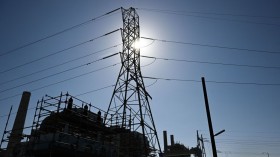Mississippi has now replaced West Virginia as the most obese state in the United States. The 2013 Gallup Well-Being Poll published Monday also shows that Montana is now the least obese state in the country.
Since 2008, there has been a steady increase in obesity rates across all states in the United States. Mississippi, West Virginia, Louisiana, Arkansas, and Kentucky maintained their position as top obese states from 2010 through 2012. Four states - Colorado, Massachusetts, Connecticut, and California have been least obese states. A body mass index of 30 or over is considered obese.
While there are a variety of factors that are often correlated with rising obesity rates, such as an unhealthy food environment, poor eating habits, increasing portion sizes, and inactivity, experts agree that the health consequences of obesity are real," Dr. James E. Pope, Senior Vice President and Chief Science Officer at Healthways, said in a news release.
According to estimates by Centers for Disease Control and Prevention, a third of all people living in the United States are obese. The number of obese people is expected to rise in the future as 17 percent of children and teens are already diagnosed with obesity.
Obesity comes with several health issues. The condition increases risk of developing heart disease, diabetes, stroke and arthritis and even some cancers.
In the poll, states with highest obesity rates also had highest number of people who were diagnosed with a chronic disease.
"Research has shown that the average healthcare costs for an obese individual are over $1,300 more annually than someone who is not obese. Although slowing and even reversing this trend may seem daunting, even modest weight loss of 5% to 10% of initial body weight can lower the health risks associated with obesity," added Pope.
According to the Gallup Poll, Mississippi had an obesity rate of 35.4 percent in 2013, while Montana had an obesity rate of 19.6 percent. The national obesity rate jumped from 26.2% in 2012 to 27.1 percent in 2013.
The poll results were based on telephone interviews conducted as part of the Gallup-Healthways Well-Being Index. Nearly 178,072 adults aged 18 and over living in 50 states and District of Columbia were part of the survey.
© 2024 NatureWorldNews.com All rights reserved. Do not reproduce without permission.

![Extreme Heat Wave in Africa’s Sahel Region That Killed 100 People Linked to Climate Change [Study]](https://1471793142.rsc.cdn77.org/data/thumbs/full/70226/280/157/50/40/extreme-heat-wave-in-africa-s-sahel-region-that-killed-100-people-linked-to-climate-change-study.jpg)



